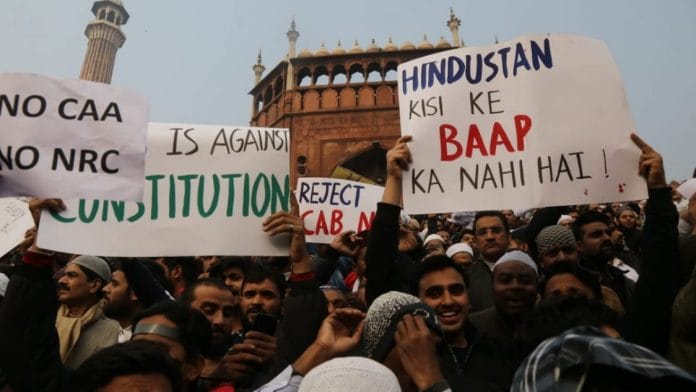It has been constantly argued that the youth of India is rather apolitical and only engages in the superficiality of social media. On the contrary, I believe that the youth is more political today than ever for the same reason — superficiality of social media.
Andy Warhol predicted the future when he said, “Everyone will be famous for 15 minutes.” If we replace ‘everyone’ with ‘every news’ and ‘famous’ with ‘worth talking about’, we have the political spectacle of our country.
I got my first taste of being political in my second year of college when I heard the news of an eight-year-old girl being tortured and raped in the name of religion. It wasn’t the first time I had heard of rape. It also wasn’t even the first time I heard of the rape of a minor girl. But it was the first time when religion was involved in such a horrendous crime.
I was shaken and angry. I went to protests, wrote poems, and slogans. Even though I was never a social media person, I made sure that I raised my voice on every possible platform available to my reach. I spoke on social media, repeatedly shared news articles and posts related to the case and similar examples from across the country. My friends did the same.
Like every other medium, social media is a route to broadcast our voices to multiple ears. However, the fact is that today we are not on social media to make our voices heard, but we raise our voice on social media to mark our presence on the platform.
The idea of understanding the socio-political spectrum of our country, formulating your ideology and exploring other truths to have a better knowledge about the issues persisting in our country has vanished from our minds. All that is left is a label — Left or Right (or if you’re lucky enough then liberal).
Being ‘anti-‘ everything
Recently, Kangana Ranaut claimed she did not feel safe in Mumbai. She received immense backlash from the ‘Left’ and the ‘Liberal’ claiming that she should move to Uttar Pradesh then.
This incident reminded me of the similar chaos that unfolded when Aamir Khan had claimed that he doesn’t feel safe in India and the ‘Right’ booked his ticked to Pakistan.
Now, the context of the two stories are different but the idea is the same — an individual should be able to speak his heart out loud without any backlash by the Opposition or self-proclaimed moral police.
We amuse ourselves often by questioning the logical sanity of those from opposing political camps and seldom do we entertain each others’ ideas. Today, the fight is not pro- ideologies, morals, or even pro-democracy, but anti-everything, everyone, and our favorite — anti-national.
If a person from different labels casts a vote for something, it has to be wrong and we have to oppose it.
We don’t just dismiss the contradictory viewpoint at once, we demean it, disgrace it, and mostly label it — ‘bhakt logic’, ‘anti-national’, ‘intellectual’ (I don’t understand why this is a bad term for some today).
Those who are constantly aware of such political trends and are always up for a debate on political issues fail to understand that a debate is not to be won but to encourage political discourse at large. A discourse that inculcates the meaning that being political is not just having opinions but also having an appreciation for others’ opinions. Being political is not just about adding a hashtag to someone’s misery, but also to add values to someone’s life.
Now, I understand that in a country like India, outrageous and breaking news occurs every moment.
It’s difficult to keep a track of a singular incident. But we should start acknowledging each and every point of view instead of just denying it. We should also argue over a holistic picture and have a debate to understand why a person believes what they do. Even then if you find the argument irrational, we should at least appreciate it.
Well, we are a country of diversity in every possible dimension. If accepting different view points is not something we can do, we should all go to Pakistan.
Shreya Mishra is student of Miranda House, Delhi







It is well intentioned to say that left and right should sit together to understand each other in democratic spirit. However, the situation in India has gone beyond that. We have a situation where anti-democrats reign with the terror of storm troopers and vigilantes.
The philosopher of science Sir Karl Popper remarked that there comes a time when the tolerance of the tolerant liberal for the intolerant cannot go further as the intolerant will kill them. We cannot go on appeasing the intolerant vigilante and fascist in the hope that he will become tolerant. It is an asymmetric situation. At that stage, the tolerant will have to link arms to oppose the intolerant and violent. India has reached that stage.
The world reached that stage with Hitler and Nazi Germany in 1938-1939. At first, he invaded several countries in Europe, and the other powers, France, Britain and the Soviet Union kept quiet, and hoped Hitler would be appeased and he would become reasonable. But his appetite grew bigger and the German people also backed him fanatically. After the invasion of Poland, Britain and France had to declare war. When Hitler invaded the Soviet Union, the latter could not seek dialogue, they had to fight. Later Britain, US and the Soviet Union had to ally to defeat Hitler and bring regime change.
We have gone past dialogue, and Indians have to link arms to check the Hindutva Nazism. Eventually, the neighbouring countries will also be forced to ally to fight the fascist menace; that is happening. The US and the west will realise at some stage backing Hindutva fascism to check China will not work, and there will be a bad cost for that.